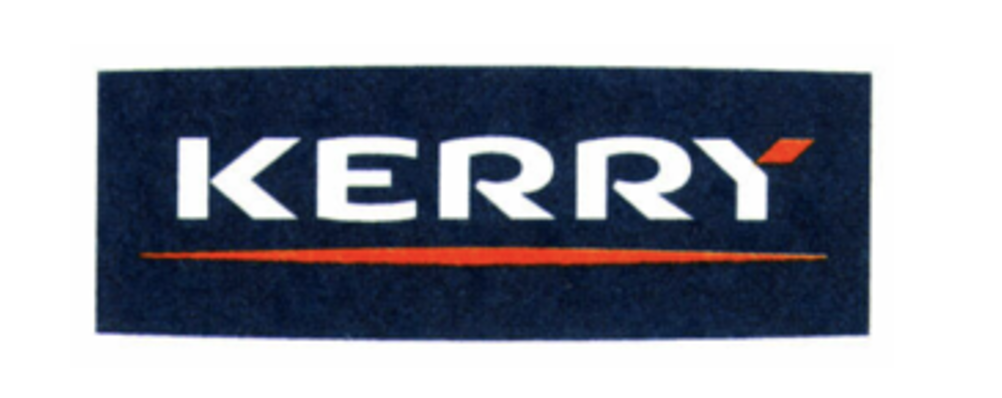BACKGROUND TO THE DISPUTE
Ornua Co-operative Ltd (hereinafter ‘Ornua’) is an Irish company which, since 1961, has been engaged in the production and export of Class 29 goods (dairy products), in particular butter, under various trade marks, including ‘Kerrygold’.
The use of the distinctive sign of its trade mark ‘Kerrygold’ dates back to 1962, when it began marketing butter under that sign in the United Kingdom, where it has a very significant presence. In addition, now, Ornua markets these dairy products under this brand in many EU countries:

Moreover, the company Tindale & Stanton Ltd. España S.L. (hereinafter Tindale), distributes in Spain a margarine made from whey under the distinctive sign ‘Kerrymaid’. These products are manufactured by the Irish business group Kerry Group PLC, a company also prominent in the Irish food sector, holder of the following EU trade mark for goods in class 29:

It is important to note that, in Ireland, Kerry Group PLC has been using the “Kerrymaid” brand for over 20 years, and despite competing in the Irish and UK market under the “Kerrygold” brand, there is no known opposition or controversy.
It should also be noted that Kerry is one of the largest counties in Ireland, known for its beef industry and agriculture. Thus, it is common for Irish producers in the food sector to use Irish or Gaelic typography in their branding to inform the consumer that the product originates in Ireland.
Proceedings at first and second instance
In the lawsuit that initiated these proceedings, Ornua brought an ordinary lawsuit against Tindale before the Alicante Commercial Court on the grounds that it considered that it was infringing the exclusive rights of its trademarks by confusion and by taking unfair advantage of their distinctive character and notoriety. However, the Court dismissed that claim.
The first instance judgment was appealed by Ornua, so that the appeal was decided by the Alicante Provincial Court, which also dismissed the appeal, concluding that the infringement did not meet the requirement of taking unfair advantage of the distinctive character or the reputation of the plaintiff’s marks.
Finally, Ornua lodged an extraordinary appeal for breach of procedure and an appeal in cassation before the Alicante Provincial Court, which agreed to remit the proceedings to the Supreme Court.
DECISSION OF THE COURT
Having upheld the second ground of appeal which dealt with the likelihood of confusion, the Court, on the basis of judgment 95/2014 of 11 March, established the following guidelines for assessing when there may be a likelihood of confusion:
“When the public believes that the goods or services come from the same undertaking or related undertakings […] and the relevant public is the average consumer of the goods or services concerned; […] An overall assessment of all the factors and circumstances of the case must be carried out, and the elements making up the signs cannot be artificially disintegrated; […] In comparing the signs it must be taken into consideration that the relevant consumer relies on the imperfect image of the signs that he has retained in his memory.”
The Board also held that there was a clear error in the assessment of confusion. Thus, citing a judgment of the General Court of the European Union (T-693/21), which had previously confronted the parties and which confirmed the existence of a likelihood of confusion and, therefore, of trade mark infringement, the Court decided that the General Court’s assessments could be extrapolated to this case.
Thus, the Court considered that the relevant non-English-speaking public would not recognise the geographical reference “Kerry” as a geographical indication of the origin of the product. And that the fact that both signs shared this element, placed in the first place, as the same structure, was sufficient to induce consumers to think that “Kerrymaid” was a mark related to “Kerrygold” goods.
For these reasons, in its final decision, the Supreme Court, apart from dismissing the extraordinary appeal for procedural infringement, upheld the appeals and the appeals with the following rulings:
(i). Declaring that the importation and marketing of butter under the sign “Kerrymaid” infringed the applicant’s EU trade mark rights.
(ii) Order the defendant to cease that infringing activity, to withdraw from the market the goods and the packaging or advertising material used in that marketing and to refrain from further engaging in the activity found to be infringing
(iii) Order the defendant to compensate the applicant with EUR 7 915.16 for investigation costs and EUR 22 479.61 for 1 % of the turnover achieved by the infringer with the unlawfully marked goods or services.
STS 4187/2021 – ECLI:ES:TS:2021:4187 10 November 2021.


 Español
Español Deutsch
Deutsch